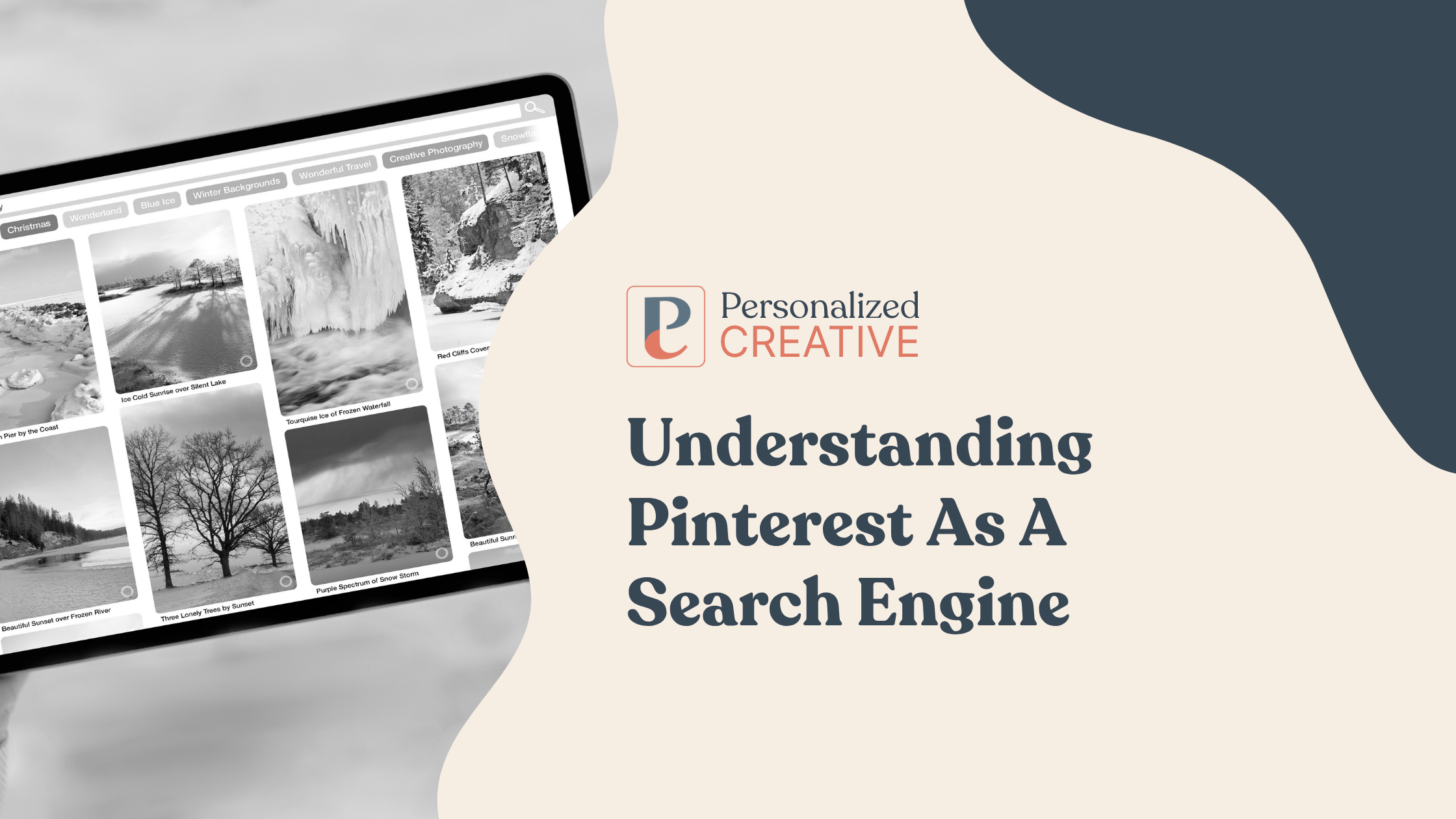Understanding Pinterest as a Search Engine
Pinterest is a social media platform, but it can also be a powerful marketing tool for your brand. Pinterest is wildly popular and has over 450 million users. Their website points out that this number is larger than the whole population of the United States. What’s more, Pinterest users love to shop. It’s among the top 5 social media platforms where users are likely to make a purchase when they visit.
Who shops on Pinterest? Women under 35 are especially likely to use this platform, but people from many other demographics can be found on Pinterest, too. It’s gaining traction among Gen Z users, and this trend is likely to continue.
Pinterest is waiting for you to leverage its marketing potential. However, without understanding the ins and outs of Pinterest searches, you won’t be able to enjoy everything this platform has to offer.
The professionals at Personalized Creative can help you make the most of this platform, and we make sure to stay up-to-date on Pinterest’s search functions. Let’s take a look at some helpful facts you need to know about the Pinterest algorithm and searching on Pinterest.
Understanding the Purpose of Pinterest
Why do people visit Pinterest? Many users say their experience is about creativity, exploration, and imagination. This might seem straightforward, but it’s an all-important difference between Pinterest and other search engines, like Google.
When you visit Google, you’re looking for an answer to a specific question or desire. You don’t want to get lost in the weeds, and you don’t want any off-topic search results. When you Google “green wall paint,” you probably want results that are only about green wall paint.
However, Pinterest users like using the app to find new things they never knew they wanted to find. A Pinterest user might search for “green wall paint,” find a picture of a green room and discover a new home decor aesthetic they’d never heard of before. To some extent, Pinterest users tend to enjoy getting “lost” in what the app has to offer.
What is “Fuzzy Matching,” and How Does Pinterest Use It?
Pinterest caters to its users’ thirst for discovery by using a “fuzzy matching” algorithm. This means the search engine isn’t just looking for an exact match to a user’s query. Instead, it looks for a range of results that are related to the search terms. Pinterest’s search engine, Mana, shows users results that connect to their search in important ways.
What does this mean for your marketing approach? You do need to use relevant, specific keywords. But there’s no need to cram your Pinterest posts full of keyword strings that don’t sound natural. The Pinterest algorithm can overlook minor differences between what you’re offering and what users are looking for.
How Do Pinterest Users Want to Feel When They Search?
Keep in mind that Pinterest users are primarily looking for inspiration, not for information. Pinterest is an overwhelmingly positive social media platform. The company claims that its algorithm prioritizes the emotional well-being of users.
When designing your marketing strategy, positivity is key. Remember, Pinterest users want content that makes them feel refreshed, uplifted, and motivated. They’re likely to come to Pinterest for things like:
Outfit inspiration
DIY instructions
Inspirational quotes and messages
Decor tips
Images that make them feel happy
Recipe ideas
Mindfulness strategies
Artwork
Notice that nothing on this list is negative or controversial. Pinterest users are looking for positive feelings and positive experiences. How can you leverage this information? Keep in mind that image quality and aesthetic appeal are vital on Pinterest. Never post a boring or unattractive image on Pinterest, no matter what you’re pinning or re-pinning.
Want to turn Pinterest into a real traffic driver for your business?
Download our free Pinterest for Business Starter Kit, a practical toolkit with checklists, strategy guides, and a planning template to help you grow with purpose (and less guesswork).
What Does the Pinterest Algorithm Prioritize?
The Pinterest algorithm ranks posts based on quality metrics. To boost your likelihood of appearing in users’ feeds, keep the following ranking categories in mind.
Domain quality: the popularity of your site’s pins and the amount of interaction they generate
Pin quality: the amount of interaction and interest a specific pin generates
Pinner quality: the amount of quality content creation and interaction you engage in as a user
Topic relevance: the degree to which your content relates to users’ searches
In order to improve your ranking on Pinterest, it’s important to generate high-quality, relevant content. However, it’s also important to interact with other users’ content and to post frequently.
Is it Time to Put Pinterest to Work for Your Business?
If your business doesn’t have a presence on Pinterest yet, you’re missing out on countless opportunities to grow your brand. If you want to make the most of marketing on Pinterest, contact Personalized Creative today. We’ve got the skills and knowledge it takes to optimize your digital marketing strategy. We treat each of our clients as unique and special–because they are!

